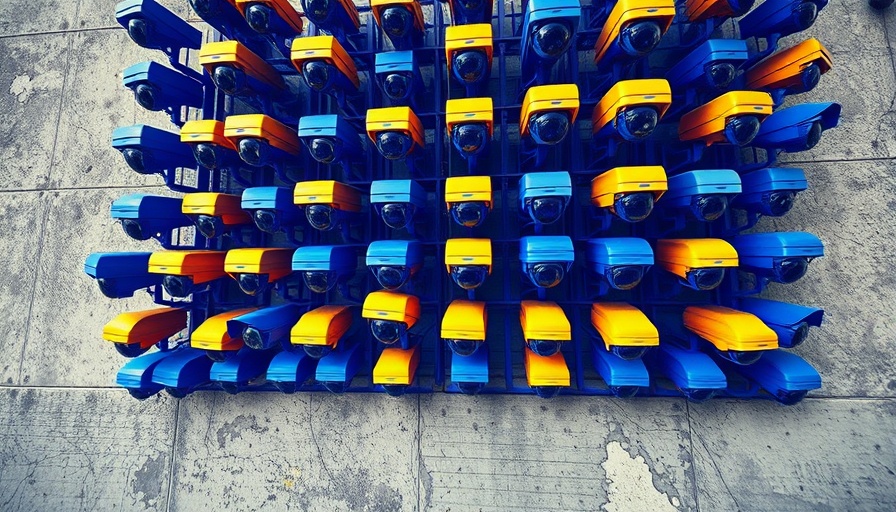
The Backlash That Sparked Change
In an era where innovation often walks a fine line between progress and ethical responsibility, a demo from Y Combinator's latest cohort, Optifye.ai, has ignited significant debate. The startup, which claims to augment the manufacturing process through AI-powered surveillance, faced immediate backlash following its viral video. Here, co-founders Kushal Mohta and Vivaan Baid showcased a dystopian scenario where a factory supervisor berates an unidentified worker labeled only as 'Number 17' for their low productivity. The criticism was swift, with comments labeling the video as promoting 'sweatshops-as-a-service'. Despite the harsh judgment, it also raises questions about the future of AI in workplaces.
Understanding the Phenomenon of 'Bossware'
This incident is not an isolated event but a reflection of growing anxieties surrounding the use of AI in the workforce, especially in contexts perceived as exploitative. A recent Pew poll revealed that a substantial majority of Americans are opposed to the concept of 'bossware'—tech used primarily for monitoring productivity. While proponents argue these technologies can enhance efficiency, critics warn they may strip employees of their dignity and humanity. The prompt removal of Optifye's video by Y Combinator highlights a crucial marketing misstep, but it does not halt the momentum behind similar technologies being developed in the sector.
The Technology Behind Surveillance
Many tech companies see potential in camera monitoring systems that track worker productivity. The response from the market indicates a conflict: the demand for operational efficiency often clashes with ethical considerations. The commentary from users on platforms like Hacker News illustrates a divided perspective. Some believe that while Optifye's approach may be abrasive, it reflects existing practices within factories that still grapple with productivity issues amidst increasing operational costs.
A Glimpse into the Future
As surveillance technology becomes more prevalent, one must consider the path ahead for AI in labor environments. The innovative solutions posed by companies like Optifye are embedded in the backdrop of a rapidly changing workforce landscape. As organizations look to artificial intelligence to maintain competitiveness, the conversation must shift beyond just efficiency metrics to encompass human dignity and rights. The Optifye incident serves as a pivotal moment to reassess our reliance on AI and how it reflects, and often distorts, workplace dynamics.
Call to Action: Embrace Ethical Innovations
This is a clarion call for investors, consumers, and tech leaders—it’s imperative to push for solutions that prioritize ethical considerations alongside technological advancement. We must ensure that innovation serves humanity and does not devolve into dehumanization. Let's proactively champion products that empower workers rather than surveil them.
 Add Row
Add Row  Add
Add 


Write A Comment